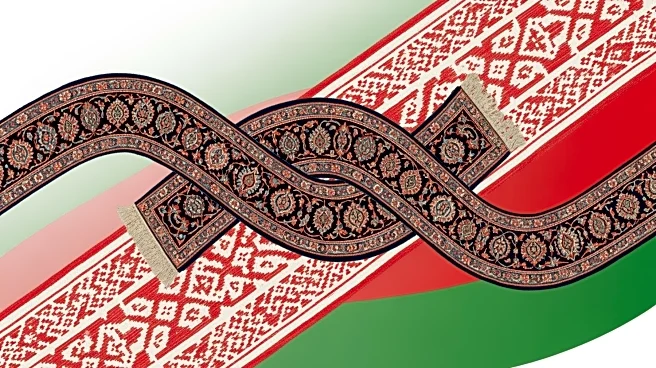What's Happening?
Iran is seeking to strengthen its ties with Belarus as it faces increasing sanctions from Western countries. According to Iran's state media, both nations have expressed their readiness to develop a roadmap for future cooperation and expedite the implementation
of joint projects. This development comes as Iranian President Masoud Pezeshkian met with Belarusian President Alexander Lukashenko in Minsk, Belarus, on August 20, 2025. The meeting highlights Iran's strategic move to align with Belarus, a key ally of Russia, in response to the mounting global sanctions.
Why It's Important?
The collaboration between Iran and Belarus is significant as it represents Iran's efforts to counteract the impact of Western sanctions by forging alliances with countries that have similar geopolitical interests. This partnership could potentially bolster Iran's economy and political standing by facilitating trade and joint ventures, thereby mitigating the effects of sanctions. For Belarus, aligning with Iran could enhance its international influence and provide economic benefits through shared projects. The move also underscores the shifting alliances in global politics, particularly in the context of Western sanctions against countries like Iran and Russia.
What's Next?
The next steps for Iran and Belarus involve formalizing their cooperation through a detailed roadmap and initiating joint projects. This could lead to increased economic and political collaboration between the two nations. The international community, particularly Western countries, may closely monitor this alliance, potentially leading to further diplomatic tensions. Additionally, other countries facing similar sanctions might consider similar strategies, potentially altering the dynamics of international relations.
Beyond the Headlines
The partnership between Iran and Belarus could have deeper implications for global geopolitics, as it may encourage other sanctioned nations to seek alliances outside traditional Western spheres. This could lead to a realignment of international partnerships and influence the balance of power. Furthermore, the collaboration might raise ethical and legal questions regarding the effectiveness and consequences of sanctions as a tool for international diplomacy.















